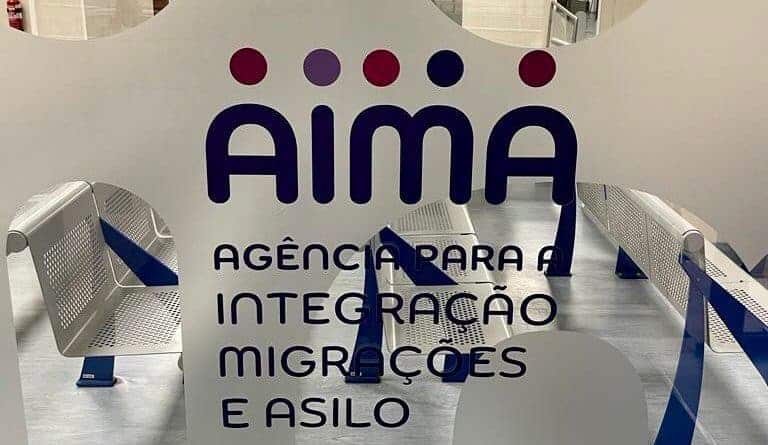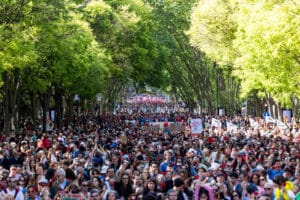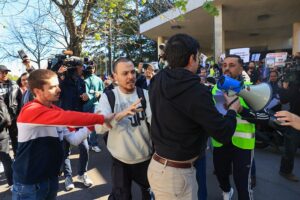AIMA still ‘mopping up’ legacy of ‘manifestations of interest’
The legacy of the previous government’s ‘manifestation of interest’ mechanism, which allowed jobless immigrants to arrive in Portugal on tourist visas and then initiate residency applications, has led AIMA (the agency for integration, migration and asylum) down a deep rabbit hole.
“AIMA is carrying out an exhaustive check of all the addresses declared in these processes and reporting them to the authorities,” the agency explains, stressing that it has so far identified a thousand cases of foreign nationals registered at the same addresses.
This information has already been sent to entities with supervisory and criminal investigation powers, while AIMA continues with its investigations.
“If we find that a large number of foreign citizens have indicated the same address as their place of residence, AIMA has a duty to flag this up to the competent authorities,” says the agency.
This announcement dovetails with “many cases of addresses where dozens of people are registered” coming to light in recent weeks – long after the manifestation of interest mechanism was shut down, but not before hundreds of thousands of applications had clogged the system.
Expresso last Friday, for example, carried a double page spread on the ‘illegal immigration networks in 17 parishes of Lisbon”, recalling that the first warnings of this kind of operation were flagged back in 2022.
Right now, in Lisbon, 30 people are on trial for running an illegal network in the parish of Penha da França which managed to register 4,349 immigrants in just two apartments before authorities started reacting. (The registering of immigrants to properties, requiring the acknowledgment by two ‘independent witnesses’, is the first step towards applying for Portuguese residency).
The trial for aiding illegal immigration/ document falsification/ abuse of power is just the tip of what is turning out to be a massive iceberg.
The paper explains that “similar schemes have already been detected in 71% of the parishes in the city”. There are “thousands of applications” to be registered as residing at a particular property that are now under the microscope of authorities (including public prosecutors/ PJ police), and more than four dozen investigations have been opened.
The majority of immigrants involved are from Bangladesh, Nepal and India.




















